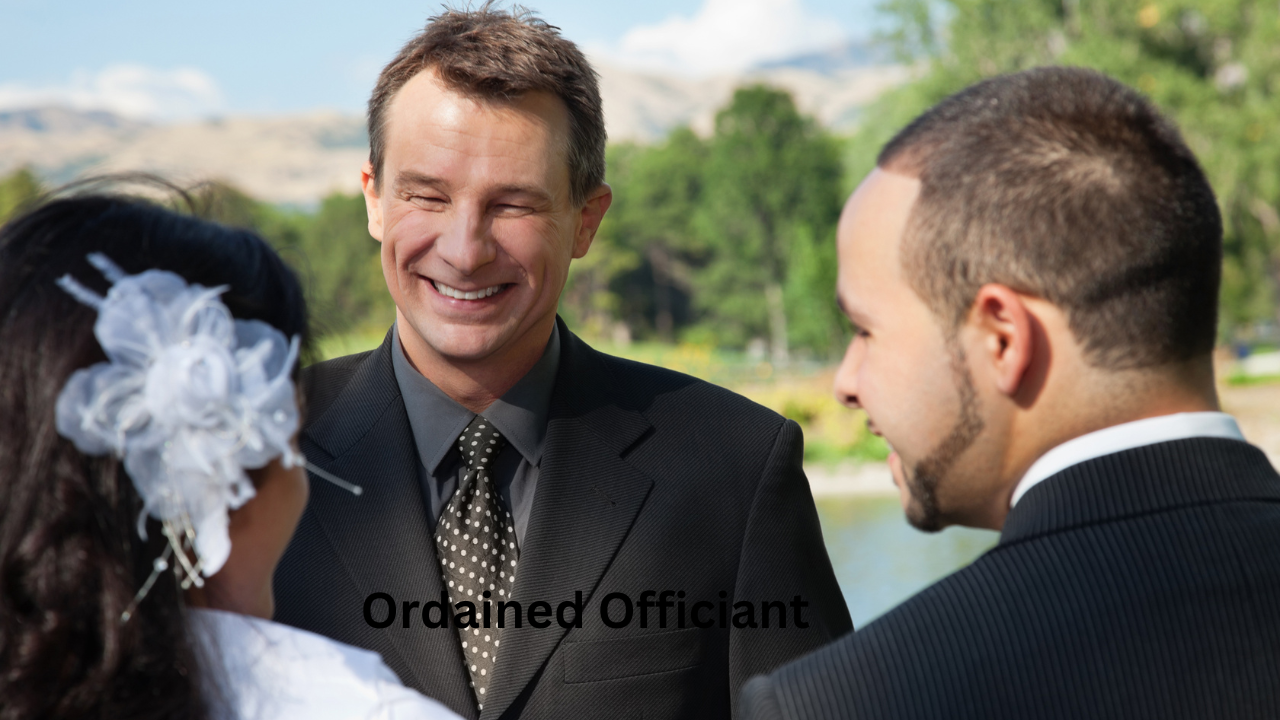Key Takeaways
- Understand the steps to become an ordained officiant.
- The importance of officiants’ roles in wedding ceremonies.
- Legal requirements and helpful tips for future officiants.
Why Become an Officiant?
Becoming an ordained officiant is a fulfilling role that allows you to participate intimately in one of the most significant events in people’s lives. Whether it’s for a friend’s wedding or starting a career in officiating, knowing how to get ordained in Iowa can be straightforward. This role offers a unique opportunity to celebrate love and commitment, making each ceremony a special milestone for those involved.
Officiating a wedding also allows you to contribute meaningfully to the couple’s special day. By understanding how to get ordained in Iowa, you can ensure everything is handled professionally and legally, enhancing the overall experience for everyone involved. Beyond personal satisfaction, many find that officiating strengthens relationships and creates lasting memories.
Legal Requirements and Responsibilities
The legal aspects of officiating a wedding are crucial. Each state, and sometimes each county, can have different requirements for officiants. Familiarizing yourself with the legal requirements and responsibilities of officiants in your area is essential. These requirements often include registering with a local government office, ensuring the marriage license is signed correctly, and submitting the completed license to the appropriate authorities.
Knowing the legal stipulations beforehand can prevent last-minute complications and ensure the ceremony adheres to the legal framework. In some areas, officiants may need to pass a background check or complete specific training. Staying informed and prepared helps maintain the integrity and legality of the marriage, contributing to a seamless ceremony.
Steps to Get Ordained
- Research Online Ordination: Various organizations offer online ordination, making it accessible to anyone interested. Finding a reputable service that suits your needs is crucial, as some organizations may carry more recognition than others. It’s advisable to read testimonials and reviews to choose the best fit.
- Complete an Application: Fill out the necessary forms the ordination service provides. These forms typically ask for basic information and address reasons for seeking ordination. This process often takes only a few minutes, making it convenient for most people.
- Receive Your Credentials: Once approved, you will receive your ordination credentials, which may include a certificate and official documentation. This paperwork is vital for proving your status as an ordained officiant and will be required for legal registration.
Acquiring your credentials is just the beginning. Make sure to read any additional instructions the ordination organization provides, as they might have specific guidelines for officiating ceremonies that ensure you’re well-prepared and professional.
Preparing for the Ceremony
Preparing for a wedding ceremony involves understanding the couple’s needs and preferences. Effective communication with the couple ensures every detail is covered, from the type of vows to be exchanged to any cultural or religious elements that must be included. Key preparation steps include rehearsing the ceremony script, organizing the order of events, and coordinating with other vendors.
By discussing the ceremony with the couple, you can incorporate personalized touches that reflect their relationship, making it uniquely theirs. Practicing the script several times will help you deliver it smoothly, and understanding the flow of events ensures no surprises. Preparation is also about logistics; confirming the venue layout, sound system, and other technical details is essential for success.
Conducting the Ceremony
- Arrive Early: Ensure you’re at the venue beforehand to handle any last-minute details and calm any pre-ceremony nerves. This also allows one to meet with other participants and double-check everything is in place.
- Follow the Script: Stick to the script agreed upon with the couple, but allow for some spontaneity if appropriate. Creating a smooth and heartfelt experience is critical; a well-rehearsed script helps achieve that. Use pauses effectively to add drama and emphasis where needed.
- Execute Legal Duties: Ensure the couple and witnesses sign the marriage license. Submit the signed license to the appropriate government office promptly. This ensures the marriage is legally recognized, which is the officiant’s ultimate responsibility.
Conducting the ceremony is the moment when all your preparation comes to fruition. Engaging with the audience and maintaining eye contact can enhance the ceremony’s emotional impact, making it a memorable occasion for everyone involved.
Common Mistakes and How to Avoid Them
- Forgetting the Legal Paperwork: Always double-check that all legal documents are in order before the ceremony begins. Carry a checklist to ensure everything is noticed, and confirm with the couple and witnesses that they understand their roles.
- Ignoring the Couple’s Preferences: Customizing the ceremony to fit the couple’s wishes is critical. Listen carefully to their needs and include personal touches that make the ceremony unique. Sometimes, minor preferences can be a significant aspect of their ceremony vision.
- Overlooking Public Speaking Skills: Public speaking can significantly enhance the ceremony delivery. Confidence and clarity in your voice can make a huge difference in how the ceremony is perceived. Consider taking a public speaking course or practicing in front of a mirror to hone your skills.
Avoiding these common mistakes ensures the ceremony runs smoothly and meets the couple’s expectations. Attention to detail and practice are instrumental in preventing mishaps and creating a flawless experience.
Final Thoughts
Becoming an ordained officiant is not only a responsibility but also a privilege. The role allows you to create cherished memories for couples and those involved. You can conduct a successful and memorable wedding ceremony by understanding the legal requirements, preparing thoroughly, and avoiding common pitfalls. Remember, the key to being a great officiant lies in connecting with the couple, understanding their vision, and bringing it to life on their special day.










